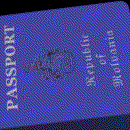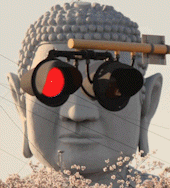If they manage to delay it for, say, a year....how much more overbudget does it become?
| Hot Topics | |
|---|---|
More PLAGUE SHIPS for Japan...
77 posts
• Page 3 of 3 • 1, 2, 3
Re: More PLAGUE SHIPS for Japan...
Indeed...but likely he has some sort of indirect control over the decision made on this side. Not to say that the IOC won't have final say on what happens.
If they manage to delay it for, say, a year....how much more overbudget does it become?
If they manage to delay it for, say, a year....how much more overbudget does it become?
-

matsuki - Posts: 16047
- Joined: Wed Feb 02, 2011 4:29 pm
- Location: All Aisu deserves a good bukkake
Re: More PLAGUE SHIPS for Japan...
Experts sound alarm over Japan's coronavirus testing
I can't avoid the impression that Japan's corona policy will prove to be a complete cluster fuck.
Well, let's see how it is in two weeks time.
In the mean time I'll stay home as much as possible.
Despite Japan’s efforts to carry out more testing for the new coronavirus, medical experts have cast doubt on whether the country can provide adequate testing for citizens and promote effective policies to contain the outbreak.
Others have warned that many private companies and government bodies in Japan have remained reluctant to take aggressive measures to combat the spread of the pneumonia-causing virus until an employee is found to be infected.
An expert on data analysis and modeling for social-economic systems has called on such organizations to implement urgent steps against the coronavirus, given that the test results are likely to take up to two weeks and that the number of infected patients may increase during the period.
Firms are also expected to incur heavy losses if they only start to act once a worker is infected, as they would be forced to swiftly take drastic measures, including shutting down their operations for an extended period, which could restrict social-economic activities.
“It is hard to comprehensively explain (testing capacity in Japan as a whole) as it varies across the country. But not enough is being done around me (at least),” said Kentaro Iwata, a professor of infectious diseases at Kobe University.
Even when there are test kits or the necessary equipment, the number of tests does not increase immediately because it takes time for medical institutions to ensure the accuracy of the tests.
Procedures such as seeking approval for insurance coverage also have to be dealt with, said Iwata, who joined the medical response team that boarded the Diamond Princess cruise ship that was quarantined off Yokohama in February.
Prime Minister Shinzo Abe said on March 14 that Japan has a capacity to test more than 6,000 people per day. Meanwhile, health ministry data showed the number of tests conducted between Feb. 18 and March 19, stood at 37,726. The number of people who have been tested is lower, as some are tested more than once.
“In the first place, we believe there is not so much need for testing in Japan (as in other countries),” Takuma Kato, deputy director of the Ministry of Health, Labor and Welfare’s infectious diseases control division, said on March 11.
He said Japan is not experiencing an explosion of infection numbers with severe symptoms as seen in countries like Italy and South Korea.
According to the World Health Organization, around 8,800 cases were confirmed in South Korea and 47,000 in Italy as of Sunday, while Japan had over 1,000, excluding cases from the Diamond Princess.
In Japan, the ratio of people who tested positive for the virus to those who have been tested “is never high,” Kato said.
But Iwata raised doubts about such a view.
“Japan has not contained (the virus), or perhaps I should say we cannot even judge whether we have contained it without conducting (a sufficient number of) tests,” he said, stressing the need for doing more tests in areas where infections are increasing.
The WHO has recently urged countries to test every suspected case.
To more accurately grasp how many people took tests in Japan, the health ministry asked local governments on March 4 to report not only the number of people who tested positive but also those found negative.
Akihiro Sato, a professor of information sciences at Yokohama City University, hailed the development in terms of data analysis, saying it will help correctly understand Japan’s capacity for conducting tests.
“The total work efficiency in Japan can increase by clarifying regional differences between inspection capacity and demand,” said Sato, who has formulated a mathematical model to contain the virus.
According to his calculations, the spread of the virus can be stopped if people reduce human interaction to 6 percent from the current 80 percent, which was realized with the government’s policy of restricting public events.
“For instance, if a person reduces interaction with other people to three times per week from 50, it is possible to see a lower number of cases,” he said.
“It is impossible to end the pandemic unless all citizens obey strict social distancing immediately and create an environment where they can satisfy themselves with 6 percent interaction for more than two weeks,” he said.
Link
I can't avoid the impression that Japan's corona policy will prove to be a complete cluster fuck.
Well, let's see how it is in two weeks time.
In the mean time I'll stay home as much as possible.
“To learn who rules over you, simply find out who you are not allowed to criticize.”
“I know not with what weapons World War III will be fought, but World War IV will be fought with sticks and stones.” ― Albert Einstein
-

Russell - Maezumo
- Posts: 8580
- Images: 1
- Joined: Fri Aug 13, 2010 11:51 pm
Re: More PLAGUE SHIPS for Japan...
Russell wrote:I can't avoid the impression that Japan's corona policy will prove to be a complete cluster fuck.
Well, let's see how it is in two weeks time.
In the mean time I'll stay home as much as possible.
Hope for the best, prepare for the worst and don't jump to conclusions. I agree that it is unlikely that Japan can hope to dodge the thing almost completely and that things are very likely to get worse before they get better. We will see how much worse. I have been staying home as much as possible for weeks and expect that to continue for a good while. We head into a scheduled break for two weeks now and we'll just have to see after that. Perhaps by then cases, including serious cases, will have rocketed and the country will be facing the sort of extreme measures we now see in Europe and we saw in China. It only takes a week or so ....
It is a tale told by an idiot, full of sound and fury, signifying nothing.
- Macbeth (Act 5, Scene 5)
William Shakespeare, April 1564 - May 3rd 1616
- Macbeth (Act 5, Scene 5)
William Shakespeare, April 1564 - May 3rd 1616
-

Wage Slave - Maezumo
- Posts: 3765
- Joined: Wed Aug 15, 2012 12:40 am
Re: More PLAGUE SHIPS for Japan...
“Japan has not contained (the virus), or perhaps I should say we cannot even judge whether we have contained it without conducting (a sufficient number of) tests,” he said, stressing the need for doing more tests in areas where infections are increasing.
At lease someone in the right area has the right idea...
-

matsuki - Posts: 16047
- Joined: Wed Feb 02, 2011 4:29 pm
- Location: All Aisu deserves a good bukkake
Re: More PLAGUE SHIPS for Japan...
Anyone wants to buy a cruise ship?!?
“To learn who rules over you, simply find out who you are not allowed to criticize.”
“I know not with what weapons World War III will be fought, but World War IV will be fought with sticks and stones.” ― Albert Einstein
-

Russell - Maezumo
- Posts: 8580
- Images: 1
- Joined: Fri Aug 13, 2010 11:51 pm
Re: More PLAGUE SHIPS for Japan...
Russell wrote:I can't avoid the impression that Japan's corona policy will prove to be a complete cluster fuck.
Well, let's see how it is in two weeks time.
In the mean time I'll stay home as much as possible.
(about two weeks later...)
My that graph is looking very exponential.
-

yanpa - Posts: 5671
- Images: 11
- Joined: Sun Nov 04, 2007 11:50 am
- Location: Tokyo
Re: More PLAGUE SHIPS for Japan...
yanpa wrote:Russell wrote:I can't avoid the impression that Japan's corona policy will prove to be a complete cluster fuck.
Well, let's see how it is in two weeks time.
In the mean time I'll stay home as much as possible.
(about two weeks later...)
My that graph is looking very exponential.
Yep, doesn't look good. And it seems they didn't do the proper preparations. I don't want to think what is going to happen in the next two weeks.
Are Tokyo's hospitals and health care system ready for a COVID-19 storm?
With the number of COVID-19 cases in Tokyo having nearly quadrupled in 10 days, it seems no longer a question of whether Japan will declare a national emergency, but when and how.
Officials and experts fear the capital city may not be prepared to handle an explosive rise in the number of cases that would overwhelm hospitals and collapse the health care system, also described as an “overshoot.”
Though officials maintain that an overshoot has not yet occurred in Tokyo, or anywhere else in the country, they say the danger remains imminent.
“In many ways, hospitals in Tokyo are not prepared for that situation,” said Koji Wada, a professor in public health at the International University of Health and Welfare and a member of the government’s expert panel on COVID-19.
As it stands, Tokyo has designated mostly publicly funded hospitals to take in coronavirus patients. But those facilities are starting to show signs of exhaustion, Wada said, and won’t be able to handle a significant increase in patients.
As of Monday, the Tokyo Metropolitan Government said it had 500 hospital beds in total for COVID-19 patients, and that 394 were occupied. Aware of the risks that poses, the city aims to obtain 700 additional beds for patients experiencing severe symptoms and 3,300 for less severe cases.
The health ministry has estimated that Tokyo could see up to 530 cases in total before April 8 if stricter measures are not taken. And when the pandemic peaks, the city may have to deal with up to 700 new patients in need of intensive care daily as well as more than 20,000 requiring treatment for pneumonia.
To avoid a collapse of the capital’s health care system — a grim scenario in which otherwise treatable patients would lose their lives — Wada said financial incentives would be needed to encourage private hospitals and nondesignated medical facilities to take in COVID-19 patients.
Another concern is that the daily reports of newly confirmed cases do not reflect how fast the virus is currently spreading, but rather, how much it has already spread.
As of Wednesday evening, the Tokyo Metropolitan Government had reported 521 cases of the novel coronavirus and 16 deaths. As many as 78 cases had been reported the previous night, following a turbulent period in which seven record-breaking days brought the tally in the capital to the highest among all 47 of the nation’s prefectures. Tokyo was slated to announce up to 66 additional cases Wednesday night, bringing the tally in the capital close to 600.
For most patients, two to three weeks have elapsed since they were infected by the time they test positive and the case is made public. It’s also possible to carry the virus for up to two weeks before developing symptoms.
What that means is that many of the numerous cases reported in Tokyo over the past week reflect infections that took place weeks ago. New cases, of patients infected before the governor began asking residents to isolate themselves, are likely to emerge in the coming days.
The most crucial factor is whether Tokyo has the capacity to treat all patients in need of immediate medical attention.
According to the World Health Organization, 80 percent of COVID-19 patients recover completely after experiencing minor symptoms, while about 15 percent are hospitalized and the remaining 5 percent require intensive care.
In Japan, a small fraction of those intensive care patients are treated using extracorporeal membrane oxygenation, or ECMO, which provides respiratory support with cutting-edge technology and is used occasionally to remedy serious lung problems, as well as heart issues.
There are just over 1,400 ECMO machines in Japan, according to a joint survey released in March by the Japanese Society of Respiratory Care Medicine and the Japan Association of Clinical Engineers. But only about 300 of these machines are available for COVID-19 treatment, said Satoru Hashimoto, the director of intensive care medicine at Kyoto Prefectural University of Medicine’s hospital.
In Tokyo, 16 people among the 521 cases reported so far are suffering from severe symptoms. The city has limited ventilators and fewer than 200 ECMO machines, according to the March survey, only a fraction of which can currently be used for COVID-19 treatment.
More
I like how they use the term "overshoot". Do they even understand what it means? It means a temporary increase from a normal value, which will soon return to normal. That is not what this is.
“To learn who rules over you, simply find out who you are not allowed to criticize.”
“I know not with what weapons World War III will be fought, but World War IV will be fought with sticks and stones.” ― Albert Einstein
-

Russell - Maezumo
- Posts: 8580
- Images: 1
- Joined: Fri Aug 13, 2010 11:51 pm
-

yanpa - Posts: 5671
- Images: 11
- Joined: Sun Nov 04, 2007 11:50 am
- Location: Tokyo
Re: More PLAGUE SHIPS for Japan...
Japan in favour of vaccine passports to restart international travel
https://www.ttgasia.com/2021/04/05/japa ... al-travel/
Japan Becomes Latest Country to Issue Digital Vaccine Passport
https://news.yahoo.com/japan-becomes-la ... 26893.html
Japan narrows scope of hospitalization for variant carriers
https://www.japantimes.co.jp/news/2021/ ... alization/
https://www.ttgasia.com/2021/04/05/japa ... al-travel/
Japan Becomes Latest Country to Issue Digital Vaccine Passport
https://news.yahoo.com/japan-becomes-la ... 26893.html
Japan narrows scope of hospitalization for variant carriers
https://www.japantimes.co.jp/news/2021/ ... alization/
-

Buraku - Maezumo
- Posts: 3851
- Joined: Thu May 13, 2004 9:25 am
Re: More PLAGUE SHIPS for Japan...
Japan in favour of vaccine passports to restart international travel
https://www.ttgasia.com/2021/04/05/japa ... al-travel/
Japan Becomes Latest Country to Issue Digital Vaccine Passport
https://news.yahoo.com/japan-becomes-la ... 26893.html
Japan to begin process of distributing vaccine passports, Chief Cabinet Secretary says
The passports are meant to be used strictly for travel purposes
soranews24.com | 2021/07/15
... vaccine passport to use as proof of vaccination. On July 11, Chief Cabinet Secretary Katsunobu Kato announced on an NHK TV program that applications for vaccine passports will begin to be accepted at all municipal city and ward halls in the country starting on July 26....
...Applicants will have to present proof of a flight in order to receive the passport, for example, and must bring their travel passport to the application window as well.
More...
You do not have the required permissions to view the files attached to this post.
-

Taro Toporific - Posts: 10021532
- Images: 0
- Joined: Tue Sep 10, 2002 2:02 pm
Re: More PLAGUE SHIPS for Japan...
Just going to wait for some news from Israel in the next weeks…
-

Coligny - Posts: 21823
- Images: 10
- Joined: Sat Jan 17, 2009 8:12 pm
- Location: Mostly big mouth and bad ideas...
Re: More PLAGUE SHIPS for Japan...
They are just making it easier for long term furriners to go home (and not return).
You know, hairy grotto for coming, don't stay so long next time.
You know, hairy grotto for coming, don't stay so long next time.
- fred
- Maezumo
- Posts: 23
- Joined: Wed Jul 13, 2011 8:13 am
Re: More PLAGUE SHIPS for Japan...
End of COVID testing for arrivals boosts Guam tourism's outlook
https://www.postguam.com/news/local/end ... 93b9c.html
Japan's little-known seafaring past - BBC Travel
https://www.bbc.com/travel/article/2022 ... aring-past
Justin Trudeau tests positive for COVID-19 for 2nd time
https://globalnews.ca/news/8916346/just ... cond-time/
maybe its not Covid but he got some monkey pox inside his anus?
Japan makes insulting people online punishable by up to 1 year in jail
https://uk.news.yahoo.com/japan-makes-i ... 50736.html
I almost forgot about that lesbo dyke puroresu professional wrestler that was stupid enough to take her own life. Retarded bitch does something the rest of Law Abiding Japan gets Punished?
Any it sounds like she had issues, shit time at school, Daddy issues with an islamic Indonesian national who ran the fuck away as soon as he knocked her mama up.
Her show would keep bounching back between Hawaii, Japan, Japan, then Hawaii then moved from Japan to Hawaii, then back to Japan? then Hawaii again? finally ends up in Nagano prefecture. The show was described by Clio Chang in Esquire as "the perfect show to watch with your mum".
Terrace House was a shit reality television show that follows six strangers who move in together as they build friendships, staged scripted fake reality tv sucks.
All the tarento people Reina Triendl, Hiroomi Tosaka, Ryota Yamasato seem like assholes and queers...usual tinsel town gossip drama media.
INSULT someone online
also fined 300,000 yen about $2,200 for your reply comments?
https://www.postguam.com/news/local/end ... 93b9c.html
Japan's little-known seafaring past - BBC Travel
https://www.bbc.com/travel/article/2022 ... aring-past
Justin Trudeau tests positive for COVID-19 for 2nd time
https://globalnews.ca/news/8916346/just ... cond-time/
maybe its not Covid but he got some monkey pox inside his anus?
Japan makes insulting people online punishable by up to 1 year in jail
https://uk.news.yahoo.com/japan-makes-i ... 50736.html
I almost forgot about that lesbo dyke puroresu professional wrestler that was stupid enough to take her own life. Retarded bitch does something the rest of Law Abiding Japan gets Punished?
Any it sounds like she had issues, shit time at school, Daddy issues with an islamic Indonesian national who ran the fuck away as soon as he knocked her mama up.
Her show would keep bounching back between Hawaii, Japan, Japan, then Hawaii then moved from Japan to Hawaii, then back to Japan? then Hawaii again? finally ends up in Nagano prefecture. The show was described by Clio Chang in Esquire as "the perfect show to watch with your mum".
Terrace House was a shit reality television show that follows six strangers who move in together as they build friendships, staged scripted fake reality tv sucks.
All the tarento people Reina Triendl, Hiroomi Tosaka, Ryota Yamasato seem like assholes and queers...usual tinsel town gossip drama media.
INSULT someone online
also fined 300,000 yen about $2,200 for your reply comments?
-

Buraku - Maezumo
- Posts: 3851
- Joined: Thu May 13, 2004 9:25 am
Re: More PLAGUE SHIPS for Japan...
Japanese parliament passed legislation Monday that would make online insults punishable by up to one year in jail.
The move comes after a popular Japanese reality TV star died by suicide.
The bill will be re-examined in three years to determine its effect on society.
Japan's parliament passed new legislation on Monday that will make "online insults" punishable by up to one year in jail.
The move to amend the country's penal code is set to take effect later this summer. Under the new legislation, those convicted of making online insults can be punished by up to one year in jail or be fined
It’s my limited english or is all this purposefully written in a way that they could deny any wrongdoing if they made shit up for everybit of the infos published in their article ?
-

Coligny - Posts: 21823
- Images: 10
- Joined: Sat Jan 17, 2009 8:12 pm
- Location: Mostly big mouth and bad ideas...
Re: More PLAGUE SHIPS for Japan...
Choosing not to insult someone is just good manners. Not insulting someone under the threat of up to 1 year in jail...sounds like you're living in North Korea.
-

matsuki - Posts: 16047
- Joined: Wed Feb 02, 2011 4:29 pm
- Location: All Aisu deserves a good bukkake
Re: More PLAGUE SHIPS for Japan...
matsuki wrote:Choosing not to insult someone is just good manners. Not insulting someone under the threat of up to 1 year in jail...sounds like you're living in North Korea.
LOL. This is why God invented VPN.
All faggots should have mandated adult abortion.
-

Taka-Okami - Maezumo
- Posts: 452
- Joined: Sun Apr 17, 2005 9:01 am
Re: More PLAGUE SHIPS for Japan...
I have a patent on that concept.
But I was told it was not their fault, it was genetical and their were born this way.
Shit got real when I suggested that if it was genetical the issue would have solved itself long time ago.
Anyway, another good reason to keepup with my stockpile of zyklon B…
These days french politicians spend so much energy covering up for the local camel-jockey and couscous cemetery that the djouzes are soon going to be fair game again. When they realize that dirkas don’t like fags either I guess hunting permit will be issued fast enough to have a bit of outdoor fun before the next pseudo pandemic. Certainly called “potato hemorrhoid” to be a- cynical and b- keep up with the vegetable based theme. (Tomato flue anyone)
But I was told it was not their fault, it was genetical and their were born this way.
Shit got real when I suggested that if it was genetical the issue would have solved itself long time ago.
Anyway, another good reason to keepup with my stockpile of zyklon B…
These days french politicians spend so much energy covering up for the local camel-jockey and couscous cemetery that the djouzes are soon going to be fair game again. When they realize that dirkas don’t like fags either I guess hunting permit will be issued fast enough to have a bit of outdoor fun before the next pseudo pandemic. Certainly called “potato hemorrhoid” to be a- cynical and b- keep up with the vegetable based theme. (Tomato flue anyone)
-

Coligny - Posts: 21823
- Images: 10
- Joined: Sat Jan 17, 2009 8:12 pm
- Location: Mostly big mouth and bad ideas...
77 posts
• Page 3 of 3 • 1, 2, 3
Who is online
Users browsing this forum: Google [Bot] and 6 guests

